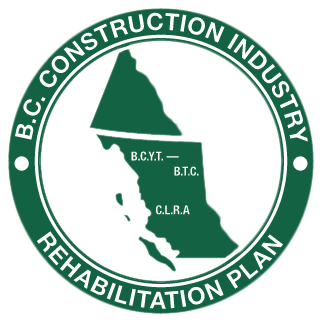What to expect from counselling
Thinking about going to your first counselling session? Maybe it’s already booked. Either way, I bet you’re wondering what to expect. “What is this whole counselling thing really like?” Right? Well, let me give some insight into what you can expect from counselling at Construction Industry Rehabilitation Plan (CIRP).
The CIRP Counselling Process:
At CIRP, your counsellor will help you to create the long-term changes your looking for, based on your goals. They’ll do that by using one or multiple types of treatment, such as talk therapy and trauma therapy. To get started, you call CIRP for an intake with the case manager. The case manager will then assign you a registered counsellor who is best suited to help with your difficulties and needs. To ensure your counsellor is the best fit for you, let your case manager know what you are looking for in a counsellor, any requirements you may have; and they will match you with the most suitable counsellor.
You will be offered a 12-month treatment plan from CIRP including counselling, group work, and online webinars. Counselling sessions will last for about one hour, once per week. Right now, counselling services are being conducted online. This is known as telehealth services, you can expect the same quality of care using telehealth that we provide in person.
While you are offered one year of counselling, you may only need it for a few months, or you may need it for longer, depending on your needs. This is because everyone is different. The goal of therapy is to equip you with the skills to enable long-term solutions, rather than a quick fix. For some people counselling can be effective in 3 months, for others its 6 months; and for others it takes the entire year, we do know though, that the longer the treatment plan the better the outcomes.
If you are recommended 12 months of treatment, remember change in life requires time and effort. Your commitment to counselling and willingness to make some difficult changes in your life, will allow you to make progress towards your goals. Self-development is an ongoing process, so even if you don’t reach your goals 100% by the end of therapy, you can take a break for a 6-month period of consolidation, then return if needed.
What to Expect in the First Meeting:
Overall, in the first session, we want to get to know you. Your counsellor will ask you questions, such as what brings you to counselling, what concerns you have, and any symptoms you experience. There will be questionnaires to complete. Your counsellor may want to learn about your past experiences such as childhood, educational history, work history, current and past relationships, and long-term goals. Don’t worry, it may take time for you to feel comfortable and we understand that; it is ok to say you do not feel ready to talk about something right now.
Say what is on your mind – your thoughts and feelings will help your counsellor understand how to help you. We won’t talk about your history or childhood too much in the first session. It may come up, but this will be talked about when you are ready to talk about it. However, we do like to get at least a brief history, starting at the second session onwards.
What to Expect in Following Meetings:
Subsequent counselling sessions are devoted to helping you understand and resolve problems, and to help you reach the goals you have set. Typically, there are weekly questionnaires as well. The therapy itself can take different approaches. Some approaches are more directive and provide feedback based on homework exercises. Other approaches give you more space to draw your own conclusions and direct the course of therapy. Whatever approach is taken, you will get out of counselling what you put into it. It is important to follow up on homework your counsellor assigns you, or goals you are working on, between counselling sessions.
You Don’t Have to Talk About Anything You Don’t Want to Talk About!
It is natural to want to avoid thinking about painful memories or events, especially if they overwhelm you. You’re probably wondering how anyone can help you if you don’t tell them what’s wrong. Well, that’s the beauty of counselling. People coming into counselling often believe they will be forced to talk about painful / traumatic experiences that they don’t want to talk about. However, this is not the case! At CIRP we can work with trauma without having to talk about the ‘event’ itself, which can be an incredibly difficult and frightening prospect for people.
Counselling will teach you how to ‘talk around’ the painful memory, and to contain painful emotions. It will also teach you how not to think about the traumatic experiences, so that you are able to catch a breath. You’ll learn to temporarily ‘put away’ painful memories, until such a time that they can be processed with a professional. We do this so you can continue to cope day to day, without your memories becoming intrusive.
You Might be Wondering How Reliving Painful Memories is Helpful to You?
Unresolved memories of trauma usually have to be talked about, otherwise they remain unprocessed and are more likely to come back as symptoms. Avoidance keeps the symptoms alive. If done with a mental health professional, reliving painful memories can be incredibly helpful; people often report a sense of relief after sessions.
The goal in counselling is always to avoid simply reliving the trauma; instead your counsellor will help you process those memories and work at healing them before they are stored away again, so over time they become less painful. Using talk therapy the counsellor can bring about healing to memories which were previously painful or overwhelming. Talking to a mental health professional can be a life changing decision. But it takes that first brave and courageous step to reach out.
